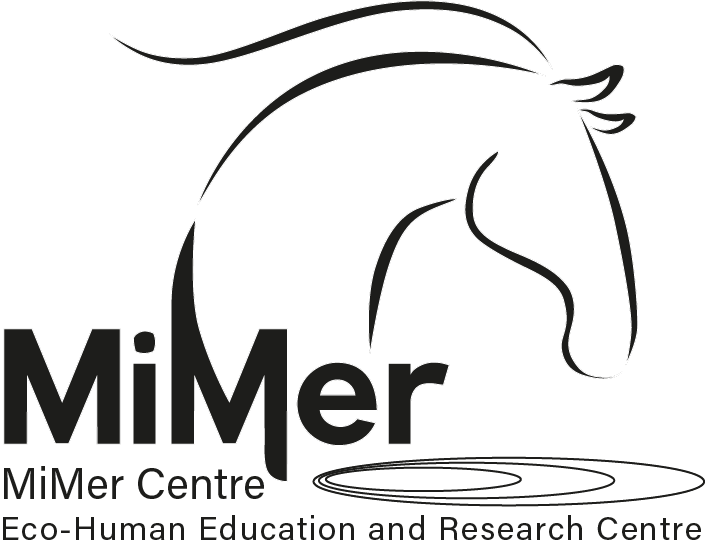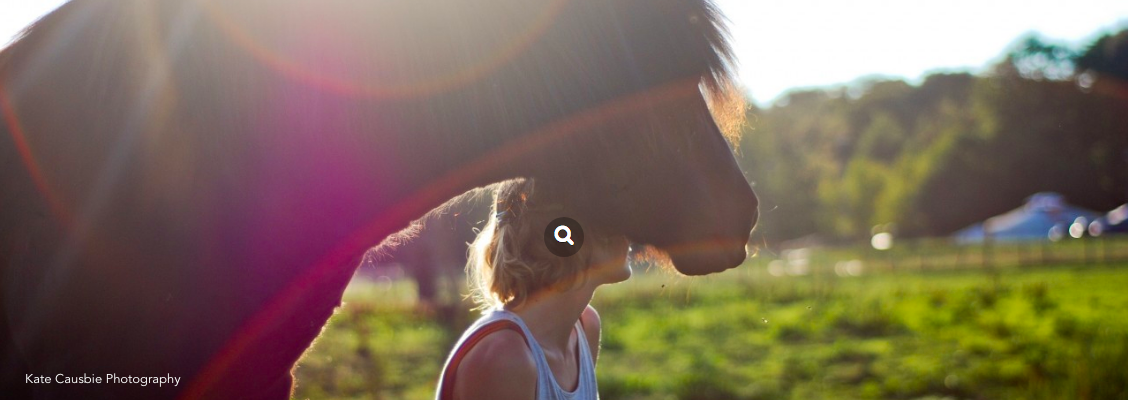What lies beyond training?
In these times of thriving fitness industry and exercise hype, I find it interesting to look into how horses life and training regime is seen. Is it training that is in the center of attention or being a hrose? Is it exercise or is it
Quite often, the most time humans spend with their horses happens around training and exercising them. As we all know, there are many different training methods, each one of them promising the results you've been missing, and just by following a method of your chosen coach, you too can achieve the wished results. Yet, a life and a relationship based on a method and a plan alone are not enough. It goes beyond the plan, beyond the method, beyond training itself, even beyond verbal explanations. As does the life of a horse. The horse's life does not begin or end in training but happens mostly around it.
Often, a lot of emphasis, pressure, and headache is put on the hour of training a day that is chosen to be performed. After completing the regime with the horse and the chosen method from the jungle of training-gurus, a sense of relief can be felt. The mind of the human can rest for the next 23 hours while leaving the horse to stay rather motionless until a similar sequence of exercises is repeated again. But what happened to the 23 hours in between? Is it reasonable to think by any means that the hour of chosen training compensates for the 23 that were left hanging? That math doesn't add up, not in my head. A horse is an animal meant to be in almost constant slow motion accompanied with short bursts of high energy movement.
Life is not a method of training. Yet it often seems that horses lives are treated as such. Instead of looking at the training with a fixed mindset, it is possible to look at the whole which is not training, not a performance but life that is continuously lived, a life that is in motion, in movement, dynamically at all hours of the day.
As said, more than plenty of focus is on training in the world of equestrians, how it is executed and what are the specific gains that are on the horizon as a result of it. However, I believe, training is not the most important thing. The most important thing is what lies beyond it, in the 23 hours of the day, outside of the realm of training.
Don't read me wrong, there's nothing necessarily wrong with training or exercising horses, but I dare to say that solely that isn't enough. Also, there can be nothing wrong with having ambitions and goals regarding training and exercise but it can be beneficial to look into the motivations from a wider perspective. That is to say, avoid getting stuck on one goal or one thing that needs to be achieved but to rather look at the whole life of a horse and all of its complex pieces that can fit beautifully together if given a chance. As the life of a horse is not constituted only of training and exercise, the question is: how are the 23 hours besides training supported? How do the 23 hours look like in a horse's life in general?
Are horses pampered to disability because of good intentions that lack understanding?
The lack of movement leads to degeneration. The lack of variety in movement leads to inadaptability and rigidity. Both are safety and wellness hazards for the horse. Are the chosen lifestyle and training regime supporting agility and adaptability in the horse's life in- and outside of the human accompanied hours? Even if the chosen training plan is the best of the best, only that can't undo the harm of the sedentary lifestyle that the human chose "for" the horse.
How much of what we do is for the horse and how much we do to the horse because of human benefit and one-directional interest?
Let's go back to look at training and exercising of horses. Showy muscles and flashy movement do not
Allowing the horse to challenge himself in nature, ensures the needed variability in his movement and thus also his physical safety and wellness. There is no need to pamper out everything "dangerous" from the horse's environment as that does not promote wellbeing but actually does quite the opposite. What about the horses that do not have the most ideal living conditions with enough naturally occurring variety and space that encourages movement and variability of it? Then training should aim to make the impact of that lifestyle a bit smaller by offering movement variety to the horse in a manner that optimally increases the horse's own motivation to move, or aim to increase his movement in a joyful way, even in less than ideal conditions.
It is at least the human's responsibility to try their best to replicate the conditions in which the horse can thrive even without training. Because that is the space and the place where the horse spends most of his time and training by itself can't undo the consequences that come from below optimal living conditions in which the horse is kept for the remaining 23 hours.
In the case of humans, it is up to the individual to choose which route to take, whether to focus on solely flashy fitness, to walk the sedentary path or to look at movement from a larger perspective but who gives the power to a human to decide that "for" a horse, to another intelligent and sentient being? That is, in my opinion, an unjust power structure, based on dominance, not on compassion, connection nor understanding. Sedentary or unbalanced lifestyle can be a human's choice to himself, but it should not be imposed on another living being if it can be avoided. And it can.
On the last note, it is not even necessary to train a horse in the traditional sense of the word if the parts of the
Is it doable to critically look at what is the goal of the chosen training and exercise methods, and see if that is truly bringing the horse any closer to his wellbeing? Isn't that what matters the most for us horse people?
When you subscribe to the blog, we will send you an e-mail when there are new updates on the site so you wouldn't miss them.


Comments